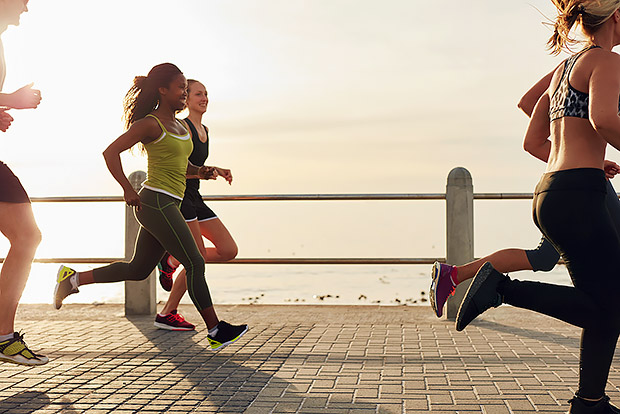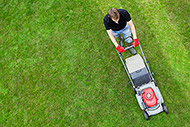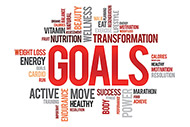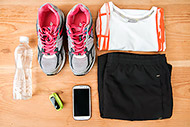
Completing a 5K race requires both fitness training and a healthy eating plan. It's essential to start your preparation several days in advance to ensure you have the proper fuel to perform your best on race day.
Carb-loading and 5Ks
Carbohydrate loading is an eating method used to maximize glycogen stores (sugar stored for energy in the muscles and liver). It’s often associated with running, but not all distances require this dietary practice. Research indicates that carb-loading is beneficial for events lasting 90 minutes or longer. Depending on pace, most runners will finish a 5K in 20 to 40 minutes. A mixed diet, consisting of about 50 percent carbohydrates, is effective in providing the fuel you need.
Low-fat and Low-fiber
About one week before the event, continue to eat your regular healthy diet. Aim to make it about 50 percent carbohydrates, including whole grains, fruits, vegetables, lean protein, and healthy fats. About three to four days before the event, gradually reduce your fat intake and focus more on carbohydrates that are lower in fiber. While lean protein is still essential, too much fat and fiber can cause stomach upset.
Don’t use your race as an excuse to load up on baked goods, sodas, or candy, which have little nutritional value. Continue to eat a healthy diet and include low-fiber fruits without edible seeds and skins, such as bananas and melons. Potatoes, sweet potatoes, and rice can also be helpful in providing the quick-burning carbohydrates you need to store glycogen during the few days leading up to the race.
Pre-race
Knowing how to eat before a 5K requires some experimentation, but here are some tips to help you prepare in the 2 to 12 hours leading up to the event:
- Instead of eating a large dinner the night before, consider eating a larger lunch and a small dinner. This helps reduce the risk of overeating and feeling stuffed the next morning before the race.
- Keep your pre-race meals low-fat and low-fiber and high in carbohydrates. People tolerate fat at different levels. For example, while nut butter on toast may work well for some, others may find that it causes stomachache.
- Test your pre-race meals and snacks. Try eating what you plan to have on race day before a few training runs.
- If you feel like you need a meal before the race, consider getting up early so you can eat at least four hours before the event and give it time to digest. Otherwise, a snack about 2 hours before the event is good for most people.
- If you find food hard to tolerate before an event, consider drinking a sports drink to supply a few calories and carbohydrates before your run.
- A few ideas for pre-race snacks include: toast with jam, a low-protein energy bar, low-fiber cereal, a banana, or almond milk.



 5 Ways to Burn 300 Calories this Weekend
5 Ways to Burn 300 Calories this Weekend
 The Best Home and Garden Chores for Burning Calories
The Best Home and Garden Chores for Burning Calories
 5 Tips for Making Exercise a Habit
5 Tips for Making Exercise a Habit
 Best Ways to Stay Safe during Exercise in Hot Weather
Best Ways to Stay Safe during Exercise in Hot Weather
 11 Tips for Exercise Motivation
11 Tips for Exercise Motivation
 Signs You Need to Increase Exercise Intensity
Signs You Need to Increase Exercise Intensity
 Mistakes to Avoid When Setting Fitness Goals
Mistakes to Avoid When Setting Fitness Goals
 Essential Gear for Starting an Exercise Program
Essential Gear for Starting an Exercise Program

 Pinterest
Pinterest RSS Feed
RSS Feed